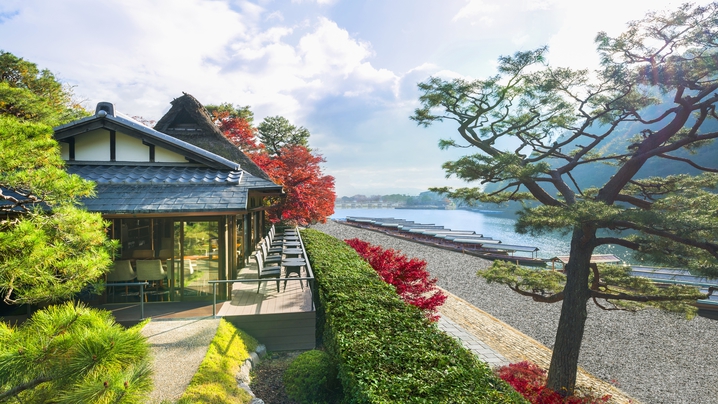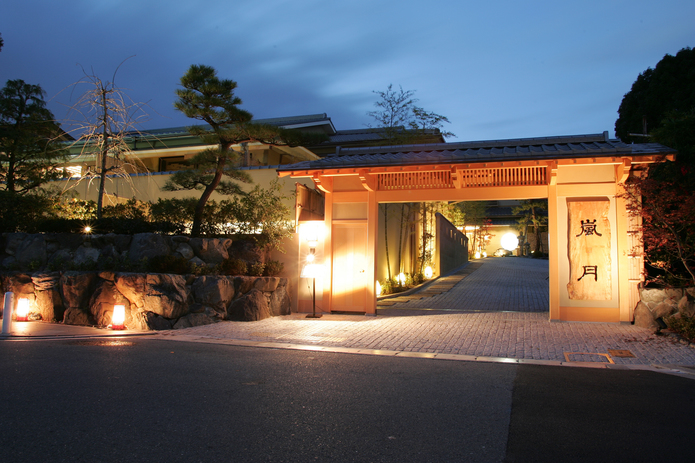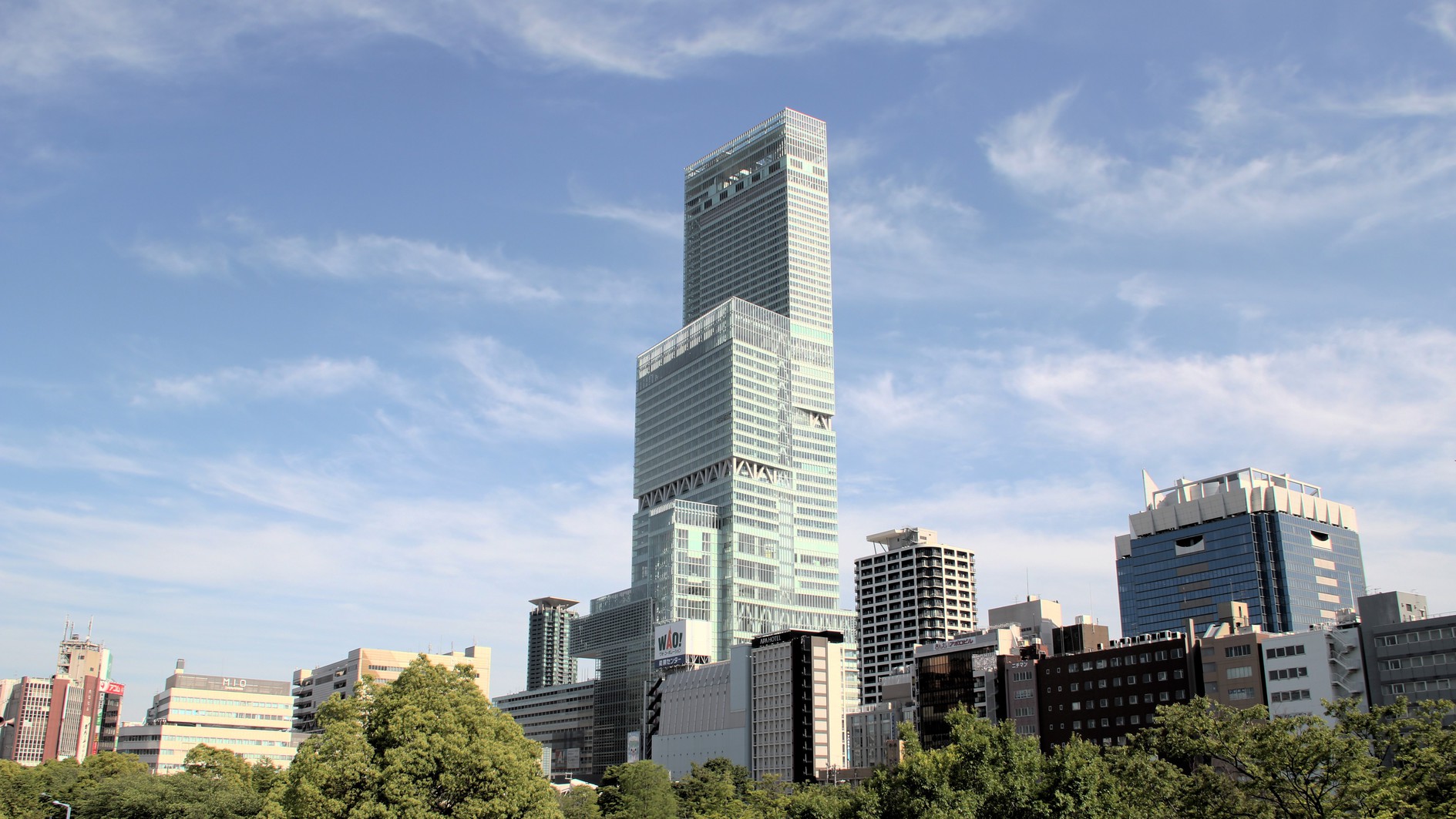
10 Dreamy Hydrangea Gardens Near Kyoto and Osaka For Flower Lovers
- Written by: WESTPLAN
Kansai’s rainy season, from June to mid-July, is the perfect time to see hydrangeas in full bloom, their petals shimmering with rain. You’ll find them in temple gardens, nature parks, and quiet corners all across the region.
In this guide, we’ll introduce ten of the best places to enjoy hydrangeas in Osaka, Kyoto, and Nara, along with tips and how to get there.
(This article may contain promotions)
- Table of Contents
-
- 1. Mimurotoji Temple (Kyoto): A Large Garden Decorated with Seasonal Flowers
- 2. Yatadera Temple (Nara): The Temple of Jizo Statues and Hydrangeas
- 3. Hasedera Temple (Nara): A Temple Where Flowers Decorate Each Season
- 4. Tanshu Kannonji Temple (Kyoto): The Oldest Hydrangea Temple in the Kansai Region
- 5. Sanzenin Temple (Kyoto): Located in the Tranquil Village of Ohara
- 6. Kyuanji Temple (Osaka): Colorful Hydrangeas Decorate the Temple Grounds
- 7. Katsuoji Temple (Osaka): Flowers and Daruma Dolls Cover the Temple Grounds
- 8. Lake Yogo Hydrangea Garden (Shiga): Enjoy Beautiful Views of the Lake and Hydrangeas
- 9. Awaji Island Akashi Kaikyo National Government Park (Hyogo): Get a View of the Ocean Over Blooming Hydrangeas
- 10. Kobe Municipal Arboretum (Hyogo): A Famous Spot that Boats a Huge Variety of Hydrangeas
1. Mimurotoji Temple (Kyoto): A Large Garden Decorated with Seasonal Flowers

North of Kyoto City, Mimurotoji Temple is situated in the city of Uji. It's conveniently located just a 15-minute walk from Mimurodo Station. Once you pass through the temple gates, you'll step into the expansive 1.65-hectare (4-acre) grounds. Within, you'll discover a serene traditional Japanese rock garden, a picturesque pond, and vast fields.
This hydrangea garden is renowned for its impressive collection, boasting one of the largest varieties of hydrangeas in the Kansai region. With approximately 100 different species and an astonishing 20,000 hydrangea plants, it offers a captivating sight to behold.
The garden showcases various species, including Western hydrangeas, French hydrangeas, oakleaf hydrangeas, and the mesmerizing mountain hydrangea, also known as the hydrangea of dreams. As you wander through the cedar grove, you'll be greeted by a breathtaking landscape adorned with colorful flowers, reminiscent of a captivating picture scroll.

- Dates: May 31 – July 6, 2025 (Illuminations on weekends from June 7–22)
- Hours: 8:30 AM–3:40 PM (Descent by 4:30 PM. Illumination: 7 PM–9 PM; last entry at 8:30 PM)
- Admission: Adults 1,000 yen, Children 500 yen
-

-
Address
21, TodoShigatani, Uji-shi, Kyoto, 611-0013
View Map -
Nearest Station
Mimurodo Station (Keihan-uji Line)
15 minutes on foot
- Phone Number 0774-21-2067
-
Address
21, TodoShigatani, Uji-shi, Kyoto, 611-0013
2. Yatadera Temple (Nara): The Temple of Jizo Statues and Hydrangeas

The Jizo statues, revered as protective deities for travelers and children, hold a special place in the hearts of the Japanese people. Among them, the Yata Jizo is particularly well-known and enshrined at Yatadera Temple, where the Life-prolonging Jizo Bosatsu is also worshipped.
Situated on the mid-slope of the Yata Hills, north of Koriyama in Nara Prefecture, this temple can be reached by a 20-minute bus ride from Kintetsu-Koriyama Station.
Within the spacious temple grounds, you'll encounter the main hall, a lecture hall, the Amida hall (housing an image of the Amitabha Buddha), and the Enmado hall (containing a sculpture of Enma, the god of the dead). Alongside the principal Jizo deities, the temple also preserves numerous valuable cultural assets.
Moreover, Yatadera is renowned as a hydrangea temple. Since their initial planting in 1965, hydrangeas have bloomed each year in mid-May. With approximately 60 species and 1,000 hydrangea plants, the temple grounds showcase a splendid variety. The optimal time to admire them is from early June to early July. The sight of vibrant hydrangeas encircling the Jizo statues offers a serene and comforting ambiance.

- Event Period: May 31 to June 30, 2025
- Hours: 8:30 AM to 5 PM
- Admission: Adults (700 yen), Children (300 yen)
-
Yatadera Temple矢田寺
- Address 3549 Yatacho, Yamatokoriyama-shi, Nara 639-1058
-
Nearest Station
Take a train to Koriyama Station on the Kintentsu-Kashihara Line. From there, take the bus bound for Yatadera-mae for around 20 minutes. (There are four buses in a day.)
*During hydrangea season, there’s a special service bus bound for Yatadera that leaves from both Koriyama Station on the Kintentsu-kashihara Line and Horyuji Station on the JR Line
- Phone Number 0743-53-1445
・Hours: 8:30 AM–5 PM
・Admission: Free (During hydrangea season: Adults 700 yen, Elementary school students 300 yen)
3. Hasedera Temple (Nara): A Temple Where Flowers Decorate Each Season

Located in Sakurai City, in the southern region of Nara Prefecture, Hasedera Temple can be reached with a short 15-minute walk from Hasedera Station on the Kintetsu Railway.
This temple serves as the head temple of the Shingon Sect Buzan School, which has a network of approximately 3,000 temples across the country. Notably, the main hall houses the revered Eleven-Faced Bodhisattva Kannon statue, designated as a national treasure.
Recognized as the Temple of Flowers since ancient times, Hasedera Temple offers captivating scenery throughout the year, including cherry blossoms and autumn foliage.
The prime time to admire the hydrangeas blanketing the temple grounds is from mid-June to mid-July. With around 3,000 hydrangea plants, the collection includes species such as Western and French hydrangeas.
Moreover, visitors have the opportunity to traverse a 399-step enclosed corridor known as a nobiriro (an important cultural property). Adorned with hanging round lanterns, the nobiriro begins at the Niomon, a Buddhist temple gate guarded by two statues.
Aside from its serene ambiance, Hasedera Temple offers other remarkable highlights, such as the wintertime view from the nobiriro and the springtime display of peonies, adding to its refined atmosphere.

- Admission: Adults (500 yen), Middle School and High School Students (500 yen), Elementary School Students (250 yen)
-

-
Address
731-1 Hatsuse, Sakurai City, Nara Prefecture, 633-0112
View Map -
Nearest Station
Hasedera Station (Kintetsu-osaka Line)
15 minutes on foot
- Phone Number 0744-47-7001
-
Address
731-1 Hatsuse, Sakurai City, Nara Prefecture, 633-0112
4. Tanshu Kannonji Temple (Kyoto): The Oldest Hydrangea Temple in the Kansai Region

Situated in Fukuchiyama City, Kyoto Prefecture, Tanshu Kannonji Temple is conveniently located just a 15-minute walk from Isa Station on the JR Line.
Renowned as the oldest hydrangea temple in the Kansai region, this temple takes pride in its connection to the region's famous seasonal flowers.
Notably, Tanshu Kannonji Temple holds the distinction of being the first fudasho (temples where amulets are distributed) in the pilgrimage route of the 25 Sacred Sites of Floral Temples in the Kansai Region. These sacred sites are spread across six prefectures in Kansai.
Moreover, the temple grounds are adorned with approximately 100 varieties and 10,000 blooming hydrangea flowers. Often referred to as a flower paradise, visitors can revel in the captivating sight of white, blue, purple, and pink blooms that embellish the temple.
During the months of June and July, hydrangeas envelop the pathway starting from the Niomon gate, as well as the route leading to the Shichikanon—depicting the seven forms of Avalokitesvara.
The best time to visit is from early June to early July, and there is an annual hydrangea festival held on the fourth Saturday of June.

- Event: Hydrangea Festival held annually on the fourth Sunday of June (June 29, 2025), 1 PM–2:30 PM
- Admission: Required only during hydrangea season (500 yen; admission is free during other seasons)
-
Tanshu Kannonji Temple丹州華觀音寺
- Address 1067 Kannonji, Fukuchiyama-shi, Kyoto 620-0803
-
Nearest Station
A 15-minute walk from Isa Station on the JR Sanin Main Line
- Phone Number 0773-27-1618
・Hours: 9 AM - 4 PM
5. Sanzenin Temple (Kyoto): Located in the Tranquil Village of Ohara

Situated in the picturesque village of Ohara, north of Kyoto City, you'll find Sanzenin Temple nestled amidst abundant natural surroundings. This temple holds the distinction of being one of the Monzeki temples, where members of the imperial family would undertake their priesthood within the Tendai sect of Buddhism.
To reach Sanzenin Temple, you can take a train to either Kyoto Station on the JR Line or Kokusaikaikan Station on the Kyoto Municipal Subway. From there, you can board a bus to the Ohara bus stop and enjoy a ten-minute stroll to the temple's entrance.
During the period from mid-June to mid-July, more than 1,000 hydrangea plants burst into glorious bloom at Sanzenin Temple. Particularly, you'll find a vibrant display in front of the Hall of Golden Acalanatha, also known as the Konjiki-Fudo-do.
Starting with the nettle-leaved hydrangeas that grace the scenery in mid-June, you'll encounter various other species, including the distinctively star-shaped bluebird mountain hydrangea, the tea of heaven hydrangea, and the French hydrangea. These captivating flowers continue to enchant visitors even after July.
Once you step foot inside the temple's beautiful and lush grounds, we highly recommend taking a moment to explore the serene ornamental pond garden known as the Shuheki-en Garden and the enchanting Yusei-en Garden. Additionally, gazing upon the gentle-looking Jizo statue named Warabe Jizo will bring about a soothing sense of tranquility.

- Admission: Adults 700 yen, Junior high and high school students 400 yen, Elementary school students 150 yen
-

-
Address
540, Ohararaikouincho, Sakyo-ku, Kyoto-shi, Kyoto, 601-1242
View Map -
Nearest Station
Kokusaikaikan Station (Karasuma Line)
22 minutes by bus
- Phone Number 075-744-2531
-
Address
540, Ohararaikouincho, Sakyo-ku, Kyoto-shi, Kyoto, 601-1242
6. Kyuanji Temple (Osaka): Colorful Hydrangeas Decorate the Temple Grounds

Situated in Ikeda City, Osaka Prefecture, within the Hokusetsu area, Kyuanji Temple is conveniently accessible with a 15-minute bus ride from Hankyu Railway's Ikeda Station. Spanning over an expansive area of 6.6 hectares (16 acres), the temple offers a delightful array of beautiful flowers throughout the seasons.
In addition to its renowned hydrangeas, Kyuanji Temple showcases other captivating blooms such as peonies, azaleas, and lotuses. Within the temple's spacious grounds, you'll discover a variety of hydrangea species, including French hydrangeas, oakleaf hydrangeas, and shooting star hydrangeas.
In total, there are five distinct varieties and approximately 1,000 hydrangea plants adorning the landscape. These enchanting flowers come into full bloom from June to July. Furthermore, during the middle to the end of June, you can witness a unique display where hydrangeas are placed in the pond in front of the main hall, creating a picturesque scene as the vibrant flowers gracefully float on the water's surface.

-
Kyuanji Temple久安寺
- Address 697 Fushiocho, Ikeda-shi, Osaka 563-0011
-
Nearest Station
Once at Hankyu Railway’s Ikeda Station, take the Hankyu Bus bound for Fushiodai or Maki, Kibougaoka. Get off at the Kyuanji stop right in front of the temple.
- Phone Number 072-752-1857
・Hours: 9 AM - 4 PM
・Admission: 300 yen
7. Katsuoji Temple (Osaka): Flowers and Daruma Dolls Cover the Temple Grounds

Situated near Minoyama in northern Osaka, Katsuoji Temple is nestled within the Meiji no Mori Mino Quasi-National Park. To reach this serene location, you can take a 30-minute bus ride from Senri-Chuo Station or drive for approximately ten minutes from Minoo Station on the Hankyu Railway.
With a history spanning 1,300 years, Katsuoji Temple is renowned as the temple of winning luck. Throughout the temple grounds, you'll find Daruma dolls, traditional Japanese dolls symbolizing perseverance, luck, and success, which are offered as a token of prayer.
The prime time to witness the splendid hydrangea blooms is from early June to early July. Within the vast 26.4 hectares (65 acres) of temple grounds, approximately 1,000 species of hydrangea plants flourish. Among them, you'll encounter varieties such as the tea of heaven hydrangea, the French hydrangea, and the hydrangea involucrata.
Additionally, don't miss the serene ambiance surrounding Kannon-ike (Kannon Pond), as well as the captivating scenery of flowers lining the pathways and stone steps leading to the main hall.

- Admission: Adults (high school and up) 500 yen, Elementary and junior high school students 400 yen, Preschoolers 100 yen, Free for children under 2
-

-
Address
2914-1, Aomatani, Minoo-shi, Osaka, 562-8508
View Map -
Nearest Station
Senrichuo Station (Osaka-monorail Line)
30 minutes by bus
- Phone Number 072-721-7010
-
Address
2914-1, Aomatani, Minoo-shi, Osaka, 562-8508
8. Lake Yogo Hydrangea Garden (Shiga): Enjoy Beautiful Views of the Lake and Hydrangeas

Located north of Lake Biwa, Lake Yogo is renowned as the setting of Japan's Swan Maiden folktale, where eight celestial maidens transform into swans and descend into the lake. It is also celebrated as one of the Eight Picturesque Sights of Kohoku.
From June to early July, approximately 10,000 hydrangea flowers bloom around the lake, embraced by the surrounding mountains. Encompassing an area of 600 square meters, the striking contrast between the vibrant blossoms and the tranquil lake creates a breathtaking sight. It is a delightful opportunity to immerse oneself in the refreshing scenery of early summer.
Just four kilometers north of the park lies Zenchoji Temple, another renowned destination adorned with hydrangeas. If you have access to a car, it is convenient to visit both of these locations. Lake Yogo Hydrangea Garden is a pleasant 35-minute walk from Yogo Station. Additionally, we highly recommend renting a bike at the train station and cycling along the lakeside, adding an enjoyable twist to your exploration.

-
Lake Yogo Hydrangea Garden余呉湖あじさい園
- Address Yogocho Yogokohan, Nagahama-shi, Shiga 529-0523
-
Nearest Station
A 35-minute walk from Yogo Station on the JR Line.
TEL: 0749-82-5909(Nagahama Tourism Association, Northern Promotion Bureau)
・Open: All day
・Admission: Free
9. Awaji Island Akashi Kaikyo National Government Park (Hyogo): Get a View of the Ocean Over Blooming Hydrangeas

The Awaji Island Akashi Kaikyo National Government Park is easily accessible via a roughly 45-minute bus ride from Sannomiya. This expansive park offers numerous vantage points for visitors to enjoy.
Awaji Island takes pride in being one of the leading regions in terms of the number and variety of hydrangeas found in the Kansai area. From mid-June to early July, Akashi Kaikyo National Government Park comes alive with approximately 14,000 hydrangea plants representing 20 different species. One highly recommended viewing spot is the park's sky terrace, offering a breathtaking panorama of the sea and sky.
The park showcases a splendid array of bigleaf hydrangeas, French hydrangeas, Anabelle hydrangeas with their exquisite large white petals, and double-petaled shooting star hydrangeas, each captivating in their unique beauty. These and many more enchanting varieties can be found throughout the park.
During the hydrangea season, visitors have the opportunity to embark on a delightful hydrangea tour aboard the Yume Hachi Go tram car. For a budget-friendly price of 300 yen (including tax), you can enjoy unlimited rides with a one-day ticket, exploring the scenic wonders of the park.

-
Awaji Island Akashi Kaikyo National Government Park国営明石海峡公園
- Address 8-10 Yumebutai, Awaji-shi, Hyogo 656-2306
-
Nearest Station
From Sannomiya Station on the JR Line, go to the Sannomiya Bus Terminal. From here, take the West Japan JR, Honshi Kaikyo Bus from the Oiso port. Get off at the Yumebutai-mae bus stop and walk for approx. three minutes, or get off at the Seirei Awaji Byoin-mae (Seirei Awaji Hospital) bus stop and walk for approx. five minutes.
- Phone Number 0799-72-2000
・Hours: 9:30 AM–5 PM (Until 6 PM from July 1–August 31; until 4 PM from November 1–March 31; last ticket one hour before closing)
・Closed: Second Monday to Friday of February, and year-end/New Year holidays
・Admission: Adults (15 and over) 450 yen (tax included), Free for junior high school students and younger
10. Kobe Municipal Arboretum (Hyogo): A Famous Spot that Boats a Huge Variety of Hydrangeas

Situated approximately 25 minutes away by car from the urban districts of Kobe, the Kobe Municipal Arboretum is nestled within the enchanting Mt. Rokko. It stands as one of the renowned destinations in the country for hydrangea enthusiasts.
The blooming season begins in early June with nettle-leaved hydrangeas, followed by the mountain hydrangea, famously referred to as the hydrangea of dreams, gracing the landscape in mid-June. As the month draws to a close, mountain hydrangeas take their turn, while a captivating sea of white Anabelle hydrangeas emerges in mid-July. Another native species to the arboretum, the Beni-gaku hydrangeas, bloom in early July.
From late July to early August, visitors can witness the mesmerizing hydrangea involucrata, characterized by buds reminiscent of ping-pong balls. Throughout the period from June to early August, the arboretum offers a stunning display of 25 species, 350 varieties, and approximately 50,000 hydrangea plants.
A visit to the Kobe Municipal Arboretum during this time guarantees a delightful experience immersed in the diverse beauty of hydrangeas that grace the enchanting surroundings.
・Event: Forest Hydrangea Workshop
You can learn about the homeland, types, and basic characteristics of hydrangeas. This event requires advance registration and will be conducted through a lottery system.
・Event period: May 28, June 11, July 1, July 30, 2023
・Hours: 10:30 a.m. to noon.

-
Kobe Municipal Arboretum神戸市立森林植物園
- Address 1-2 Nagao, Yamadacho Kamitanigami, Kita-ku, Kobe-shi, Hyogo 651-110
-
Nearest Station
A 10-minute free shuttle bus ride from Kita-Suzurandai Station on the Kobe Electric Railway.
- Phone Number 078-591-0253
・Hours: 9 AM–5 PM (Last entry at 4:30 PM; early opening and extended hours during hydrangea and autumn foliage periods)
・Closed: Wednesdays (next day if a holiday), and year-end/New Year holidays (Open daily during hydrangea and autumn foliage periods)
・Admission: Adults (15 and over) 300 yen, Elementary and junior high school students 150 yen (tax included)
The colors of hydrangeas that bloom during the rainy season vary based on the acidity levels of the soil. In addition to exploring the ancient temples, we highly recommend appreciating the striking contrast in flower colors that thrive in diverse regions.
(Note: Flowering periods, event dates, and details are subject to change depending on conditions.)
Kiko Matsuda, Keiko Kimura, Risa Tsushi, and a team of female writers familiar with Kansai. We love eating, drinking and traveling! We share fun information based on our experiences.
- Area
- Category
*Prices and options mentioned are subject to change.
*Unless stated otherwise, all prices include tax.
Popular Tours & Activitiess
Recommended places for you
-

Jukuseiniku-to Namamottsuarera Nikubaru Italian Nikutaria Sannomiya
Izakaya
Kobe, Sannomiya, Kitano
-

ISHIDAYA Hanare
Yakiniku
Kobe, Sannomiya, Kitano
-

Tsutenkaku Tower
Landmarks
Shinsekai, Tennouji, Tsuruhashi
-

Kambei Sannomiyahonten
Yakiniku
Kobe, Sannomiya, Kitano
-

Kanzenkoshitsuyakinikutabehodai Gyugyu Paradise Sannomiya
Yakiniku
Kobe, Sannomiya, Kitano
-
Goods

Yoshida Gennojo-Roho Kyoto Buddhist Altars
Gift Shops
Nijo Castle, Kyoto Imperial Palace
-
Ad

Experiencing Manga as Culture, Not Just Reading It: Expo 2025 with Rumiko Takahashi
-

November Events in Kansai: Fun Festivals, Food, and Things to Do in Kyoto & Osaka
-

Best Things to Do and See Around Kyoto & Osaka in September: Events and Festivals in Kansai
-

Celebrate a Dreamy Barbapapa Christmas at JR Osaka Station's Twilight
by: Guest Contributor
-

Curious About Sake? I Visited a Sake Brewery in Japan and Here's What I Learned
-

New Way to Reach Koyasan! Ride Nankai's 'GRAN Tenku' for a Heavenly Journey
by: Guest Contributor
Inspiration for Accommodations
-

Spacious Family Hotel in Namba: 20 Comfortable Stays for Family Fun
-

Charming Hotels to Enjoy the Spectacular Views of Arashiyama's Autumn Leaves from Your Room
-

Experience Stunning Views of Osaka Castle from Private Spaces: Top Hotels Near Osaka Castle
-

Recommended by Visitors! Arashiyama's Best-Rated Hotels
-

Family-Friendly Universal Studios Japan Hotel with Excellent Access
-

Enjoy a Comfortable Stay in Osaka! 10 Hotels with Convenient Airport Shuttle Services
-

Top 10 Recommended Hotels Near Namba Station with Great Access
-

Enjoy Night Views from Your Room! Recommended Hotels in Namba Area
-

Osaka Koreatown: In Search of the Best Eats in the Korean Roots of Osaka's Tsuruhashi Market
-

Fun in the Arashiyama Bamboo Forest: Quirky Ways to Enjoy Kyoto's Iconic Area
by: WESTPLAN
-
Ad

Reflections on Kyoto from a British man. What Makes Kyoto Great from an Outside Perspective.
-

Kiyomizu-dera Temple: Guide to Visiting Kyoto's Most Famous Sightseeing Spot
-

5 Popular Things to do in Umeda - Osaka's Central Area!
by: WESTPLAN
-

Things to Do in Osaka & Kyoto in January 2025: Celebrate the New Year with Festivals & Events
by: Kaori Kimura
- #best gourmet Osaka
- #things to do Osaka
- #what to do in kyoto
- #what to bring to japan
- #best gourmet Kyoto
- #new years in Osaka
- #what to buy in nanba
- #Visiting Osaka
- #onsen tattoo friendly arima
- #daiso
- #Visiting Kyoto
- #best japanese soft drinks
- #japanese fashion culture
- #japanese convenience store snacks
- #japanese nail trends




















